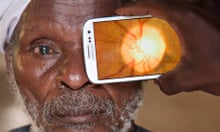As a clinical psychologist who’s spent many years helping people recover from drug and alcohol problems, I know that the substance misuse sector can be a minefield – for both service users and practitioners.
While much has improved, someone recovering from a drug and alcohol addiction is still cared for by an often bewildering array of organisations. This is something that can cause stress in the individual and the system. I believe that giving individuals more control over their lives and treatment can lead to huge benefits all round.
Patients Know Best has started working with Delphi Medical, an independent provider of clinical services for substance misuse services, to help it become the first organisation of its type in the UK to offer its service users full access to their medical records online.
Employing over 60 doctors, nurses and supporting staff, Delphi Medical provides drug and alcohol clinical services to communities across Lancashire, and to 11 prisons in the midlands and north-west of England. Delphi has started offering its service users control of their records through having a Patients Know Best account. It hopes that by the end of October, 1,000 users will be on board and by the end of the year, 2,000 people will have been recruited. But why is patient control so beneficial?
Across the UK, people who are trying to overcome addiction often receive a fragmented service. The complex nature of their condition means they must access multiple services inside and outside the NHS. There are services such as needle exchanges and prescribing services which might be run by third party or private sector providers, and others such as those offering pyscho-social interventions or recovery programmes. The patient might also be involved with the criminal justice system and need to interact with probation officers and the prison system. The fact that so many organisations exist is not the issue – the problems arise when these organisations cannot together have a single view of that person’s medical history or treatment plan.
If you give an individual access to their medical records online, their record stays with them – no matter where they are or who treats them. If the service user is put in control, they can share their record and their treatment plans with whoever needs to see them – police, probation, social services or the NHS. This not only coordinates the care around the individual but also has the added benefit of overcoming information-sharing problems between agencies.
We know that when patients take control, communication can flow more rapidly and, potentially, lives can be saved. Putting the person in control means that problems and relapse signs can be spotted before they become critical. If the service user is empowered to know what symptoms or behaviours to look for when their health might be deteriorating, their medical teams can step in before a relapse occurs.
Indeed, in the future, Delphi plans to load training material and video podcasts onto a patient’s online record, enabling them to quickly and easily understand why doctors are recommending certain courses of treatment. It will also provide information on what to do in an emergency – for example, if an accidental overdose occurs. Giving people this information will empower them to recognise when their condition might be worsening – and to act. This is good for patient care but it’s also good for the NHS. Typically, it takes around six episodes of care for a patient to become alcohol- or drug-free. Think how much could be saved if we could reduce that to two episodes – or just one.
Lastly, people with substance misuse problems often feel they’re not in control of their lives – having interventions done to them without consultation breeds further distrust. However, if you show the service user that you trust them to control their medical records, this builds confidence all round. And with confidence comes self-belief – perhaps one of the strongest aids to recovery.
Are you a member of our online community? Join the Healthcare Professionals Network to receive regular emails and exclusive offers.






